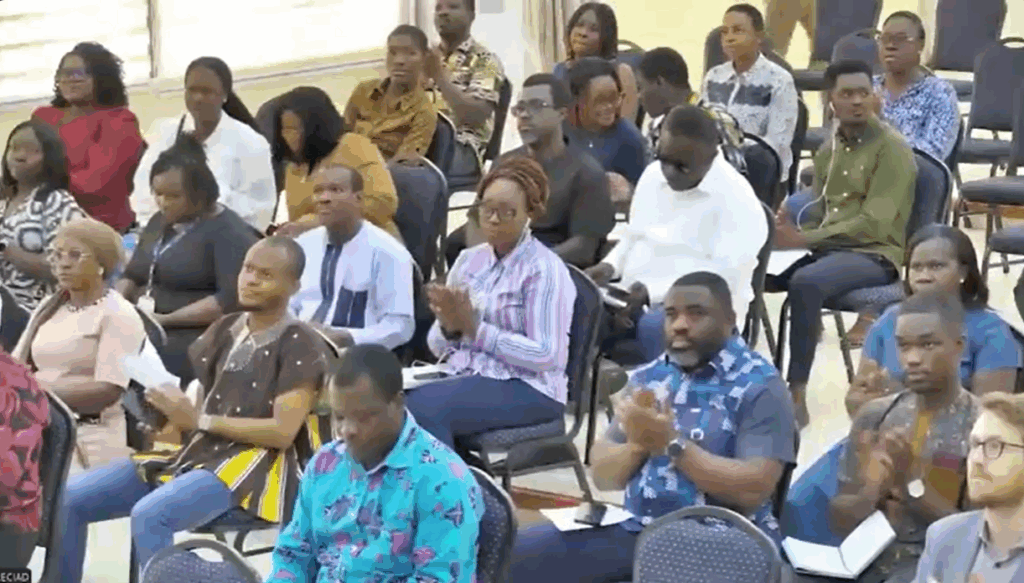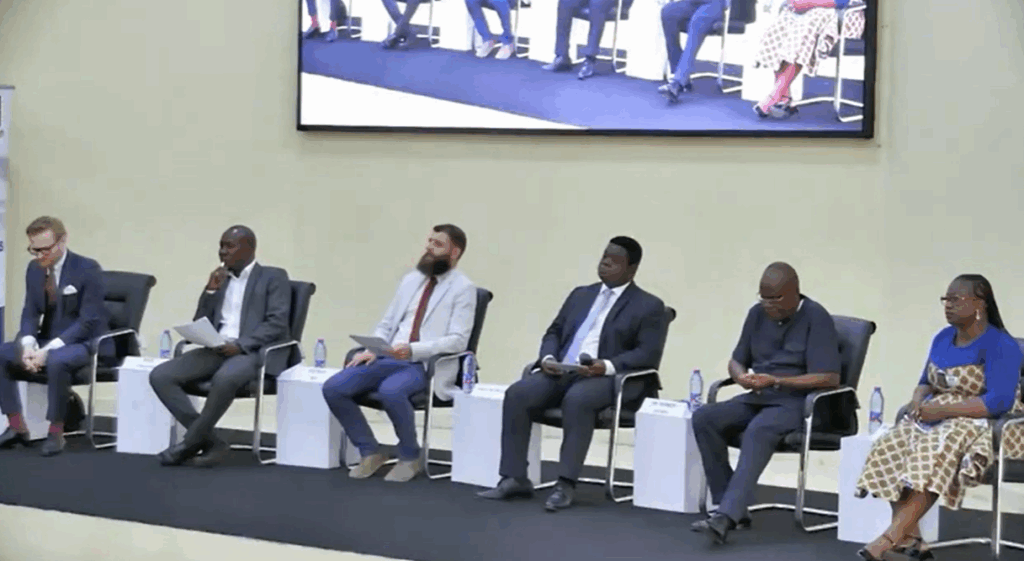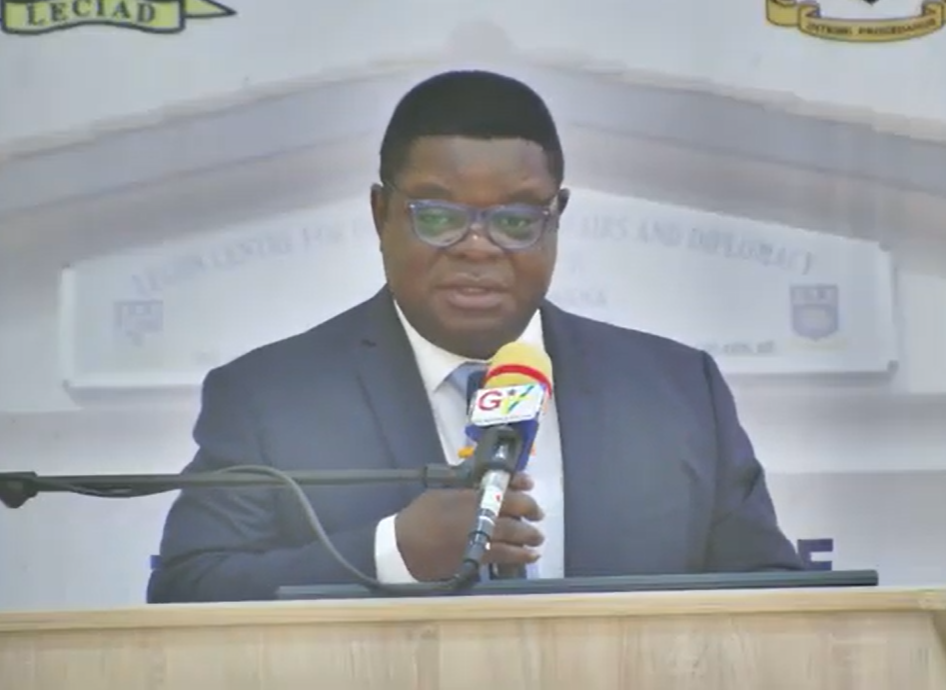
Dr. Afua Boatemaa Yakohene, Senior Research Fellow at the Legon Centre for International Affairs and Diplomacy (LECIAD), has cautioned that Africa’s security challenges are deeply tied to those of Europe, stressing that in today’s interconnected world, “security is borderless.”
She made the point while addressing a security conference on the theme “Security is Borderless: How Africa and Europe’s Security are Connected”, organised by LECIAD in collaboration with the Embassy of the Czech Republic at the Institute for Social and Economic Research (ISSER).
Dr. Yakohene explained that the idea of borderless security stems from the increasing irrelevance of traditional boundaries in an era defined by the free flow of goods, services, capital and information.
“As the world becomes more interconnected through globalisation, the security concerns of a single country or region spill over borders, challenging the security of neighbours and even distant states,” she stated.
Citing history, she recalled how Africa was drawn into the First and Second World Wars, with colonial troops fighting for European powers both on African soil and abroad.
She maintained that “Security has always been borderless. What has changed is that globalisation has made this reality more evident,” she added.

She pointed to contemporary examples, noting that although Africa was not a direct participant in the Russia–Ukraine war, its economic impact was felt across the continent through food insecurity, fertilizer shortages, and new debt burdens.
Likewise, the collapse of Libya in 2011, she said, has had far-reaching effects across West Africa and the Sahel, fuelling arms trafficking, violent extremism, terrorism, political instability, displacement, and organised crime.
Dr. Yakohene identified organised crime, irregular migration, climate-induced instability, and terrorist attacks as some of the key threats facing West Africa, many of which feed into Europe’s own security concerns.
She cited a 2013 French White Paper, which warned that political instability in Africa posed a direct threat to Europe, pointing to drug trafficking, money laundering, kidnapping, and the influx of illicit goods into European markets.
She emphasised the shared responsibility in tackling these threats, referencing initiatives such as the EUCAP Sahel mission in Niger and the EUTM training mission in Mali, as well as broader African Union and ECOWAS efforts supported by the European Union.
She stressed that both diplomatic and operational cooperation remain essential to maintaining peace and stability across both continents.
Dr. Yakohene pointed to the fact that Europe and Africa cannot afford to treat their security challenges in isolation, urging stronger collaboration and sustained dialogue between the two regions.

Committed collaboration
Dr Yakohene emphasised that the number of collaborations between African nations and international bodies aimed at strengthening international security is encouraging, however, “Without strong national commitment, the collective efforts we see today may not deliver the results we expect.”
“It is important to emphasise that EU assistance and collaboration operate not only at the continental level with the AU, but also directly with African member states, and even through bilateral engagements between EU member states and individual African states.
“On the African side, mechanisms such as the African Standby Force and the ECOWAS Standby Force, supported by the EU, have been critical in efforts to maintain peace and security in the region.
“Beyond direct security measures, the EU also engages diplomatically, using security dialogues and regional frameworks to resolve issues. Additionally, the EU invests in African governance as a platform for maintaining stability. In Ghana, for example, EU support for the National Commission for Civic Education (NCCE) has enhanced advocacy work and contributed to the peace that has underpinned elections.
“The broader conversation is about how this mutual security partnership strengthens stability in Africa, while also protecting investments in governance, education, infrastructure, and capacity building. At the same time, we must reflect on how intelligence gathering and training can be done differently. The Sahel is host to numerous missions and international organisations, yet the expected gains often fall short.
“Addressing root causes of instability—such as poverty, unemployment, and inequality—also appears insufficient. This raises an important question about the commitment of states themselves. States have a responsibility to play their part. How committed are they? How invested are they? Ultimately, it is the commitment of states that strengthens regional economic communities (RECs) and regional mechanisms (RMs), and sustains the African Union.”

Professor Peter Quartey, currently Director for LECIAD, who chaired the security conference, also emphasised the interconnectedness of Europe and Africa’s security, emphasising the importance of the topic.
“This morning, Joy FM was discussing it, and they were relating this to what is happening in Ghana, even in Bawku and the northern part of Ghana, how cross-border crime and many other things are actually a big problem,” he said.
He said both Europe and Africa have peculiar commonalities or challenges as well as insurgencies and anti-Semitism, and that the issue was “a very, very topical one” that required urgent attention, praising the Embassy of the Czech Republic for helping bring up the topic for discussion.